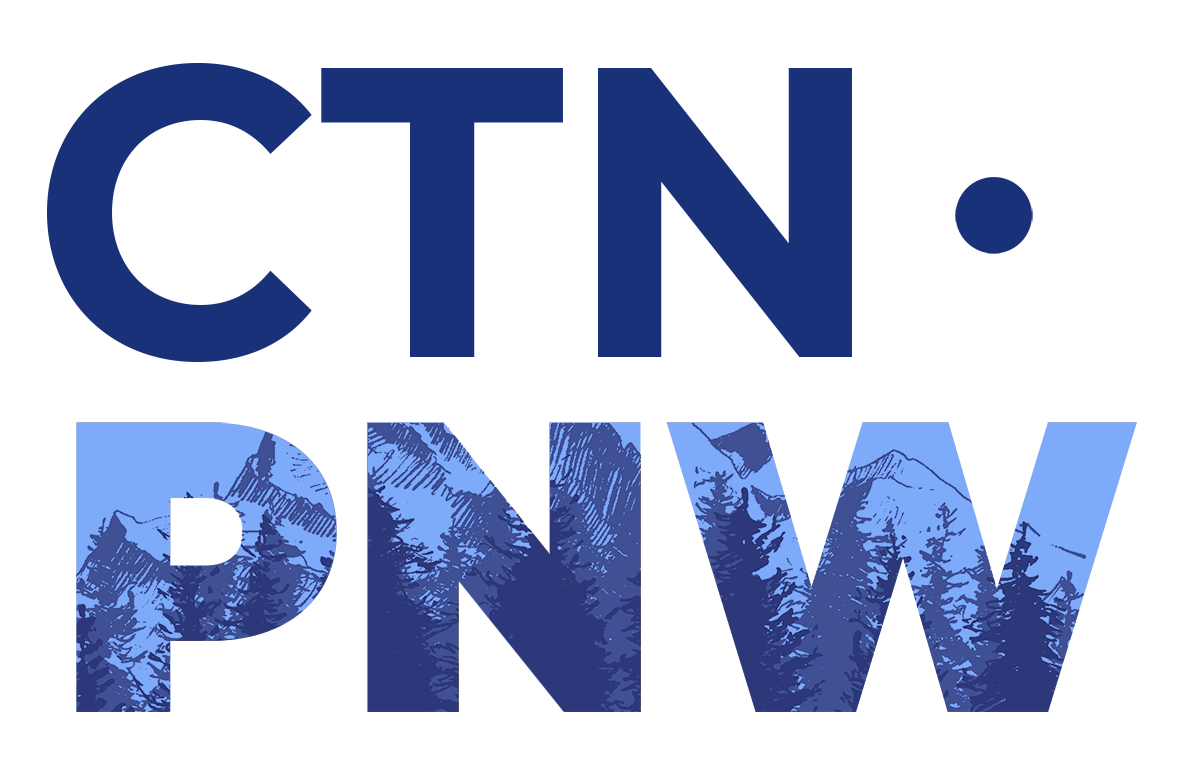About the Pacific Northwest Node
“Forging Partnerships to Improve Drug Abuse Treatment
Throughout Washington State and the Nation”
History and Purpose
Drug use disorders are a persistent problem for which new behavioral and pharmacological treatments are continually being developed. We need to find how new treatments, once shown to be effective, can be transferred into both specialty addiction care and primary health care. Barriers between research and clinical practice have made this transition difficult. A 1998 report from the Institute of Medicine challenged the field to “bridge the gap” between research and practice for the common goal of improving substance abuse treatment and its outcomes.
To help bridge the gap, the federal National Institute on Drug Abuse developed the National Drug Abuse Treatment Clinical Trials Network (CTN), so that NIDA, university researchers, health care organizations, and community-based providers can cooperatively develop, validate, refine, deliver, and evaluate new treatment options to patients. The goal of the CTN is to improve the quality and outcome of drug treatment using science as the vehicle. This partnership encourages:
- Studies of behavioral, pharmacological, and integrated behavioral and pharmacological treatment interventions in rigorous, multisite clinical trials to determine their effectiveness, practicality, and feasibility across a broad range of treatment settings and diverse patient populations; and
- The transfer of research results to physicians, clinicians, providers, and patients.
The CTN Network consists of a Clinical Coordinating Center, a Data and Statistics Center, and multiple Regional Nodes. Each regional Node is comprised of a Regional Research and Training Center (RRTC) housed in academic research settings, and linked with multiple partners such as specialty addiction treatment providers and primary health care organizations.
This framework links together a variety of treatment providers and patient populations throughout the country; the CTN forms a broad and powerful infrastructure for rapid, multi-site testing of promising science-based therapies and the subsequent delivery of these treatments to patients in a variety of treatment settings, and dissemination of results and interventions to practitioners.
About the Pacific Northwest Node

Since 2001, the University of Washington Addictions, Drug & Alcohol Institute (ADAI) has been the home for the Pacific Northwest Node of the NIDA CTN, under the leadership of Dennis M. Donovan, PhD, Professor of Psychiatry and Behavioral Sciences at the University of Washington, and Director of the Addictions, Drug & Alcohol Institute. In 2018, Mary Hatch, PhD, Senior Research Scientist at ADAI was named Co-Director of the Pacific Northwest Node. As of 2020, Dr. Hatch and Dr. John Roll are leading the node as multiple PIs. The Pacific Northwest Node is a collaboration between the Regional Research and Training Center at ADAI and affiliated community partners in Washington and Alaska.
Partner Organizations
Numerous community treatment programs (CTPs) and health care organizations in Washington serve as the “real world” settings in which the CTN is able to conduct research that serves the needs of patients and treatment providers, and serve as partners in dissemination. These programs provide a mix of settings: urban and rural, private and public sector, in-patient/residential and outpatient, drug free and methadone maintenance/medication assisted treatment programs, health maintenance organizations, primary care clinics and networks, emergency departments, mental health clinics. Through its affiliation with the WWAMI Network, and the Pacific Northwest Node reaches populations from Washington, Wyoming, Alaska, Montana, and Idaho.
Partner organizations provide a wide range of treatment services to tens of thousands of patients. Services are also targeted to specific groups having special needs such as women, adolescents, the elderly, individuals with co-occurring disorders, people experiencing homelessness, American Indians and Alaska Natives, sexual minorities, and patients in medical primary care.
Research Studies
The Pacific Northwest Node has participated in numerous CTN treatment protocols and ancillary studies since joining the CTN, collaborating with CTPs in Washington and other CTN Nodes throughout the country. A list of current and completed studies in the PNW Node can be viewed on Research Protocols page of this website.
CTN Dissemination Library
The Addictions, Drug & Alcohol Institute also manages the Dissemination Library for the Clinical Trials Network, a digital repository of articles and other resources created by and about the National Drug Abuse Treatment Clinical Trials Network. It provides CTN members and the public with a single point of access to research findings and other materials resulting from the studies conducted by the CTN as well as additional studies that have benefitted from the CTN platform or analyzed CTN data for new and useful purposes. The Library also publishes the monthly CTN Bulletin, distributed to CTN members and others.
